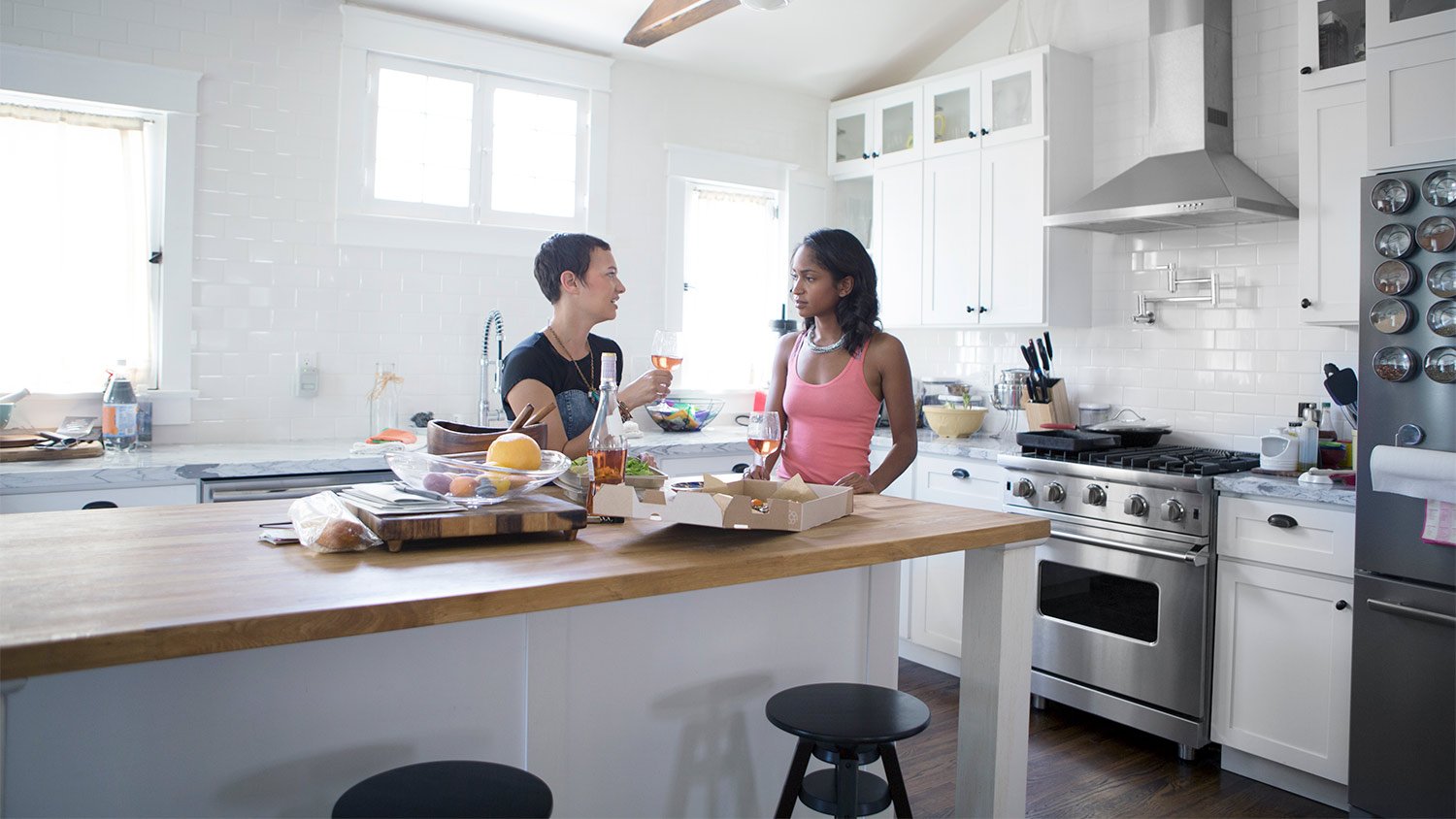What Are Sintered Stone Countertops? Everything You Need to Know About This Nonporous Material
The luxurious material you’ve never heard of


Sintered stone is engineered by compressing minerals under extreme pressure and heat.
Sintered stone is highly durable, resistant to stains, scratches, and heat, and can be recycled.
However, limited manufacturing makes it relatively expensive and hard to find.
Installing sintered stone costs between $60 and $200 per square foot.
Sintered stone is a durable building material that’s scratch-proof, nonporous, and attractive. Unlike marble and granite, it doesn’t require sealing, making it a low-maintenance option for anyone who wants a natural stone countertop or floor without the downsides that often come with these materials. Here’s what you need to know about sintered stone.
What Is Sintered Stone and How Is It Used?
Sintered stone is made by compressing minerals together under extremely high heat, forcing them to fuse. The process involves applying pressure between 370 and 25,000 tons (or the equivalent of two and a half Eiffel Towers) and heating the slabs to 2,190 degrees Fahrenheit (around the temperature of the hottest lava). The result is highly durable, resistant to heat damage, and looks similar to solid stone countertops.
While sintered stone is mainly used as a type of stone countertop material, it also has other uses around the house. Due to its high durability, sintered stone works well for flooring, stairways, wall cladding, around fireplaces, outdoor walkways or patios, and swimming pool tiling. As a bonus, this material requires less maintenance than comparable materials like marble and quartz.
Pros and Cons of Sintered Stone

Like any natural stone or synthetic stone countertop material, sintered stone has several pros and cons.
| Pros | Cons |
|---|---|
| Scratch- and stain-resistant | Expensive |
| Heatproof up to 300ºF | Prone to cracking or chipping |
| Weatherproof | Hard to source |
| Nonporous | Hard to install and repair |
| Easy to maintain | |
| Lightweight | |
| Recyclable |
Sintered stone is naturally resistant to stains, scratches, and heat damage. It’s nonporous, so it doesn’t require sealing. It’s also lightweight and can be recycled once it reaches the end of its lifespan, making it a sustainable option.
However, sintered stone is expensive compared to similar materials. Due to its limited availability, it’s hard to source, so you’ll have fewer options. Sintered stone is also difficult to install and repair, and it’s prone to cracking and chipping around the edges.
Sintered Stone Comparisons

If you’re considering sintered stone for your kitchen or bathroom countertops, you might also consider granite, quartz, and marble. Here’s how sintered stone compares to these alternatives.
| Sintered Stone | Granite | Quartz | Marble |
|---|---|---|---|
| Hard to scratch | Hard to scratch | Scratch resistant | Scratches easily |
| Heat resistant up to 300°F | Heat resistant up to 1,200°F | Heat resistant up to 150°F | Heat resistant up to 350°F |
| Never needs resealing | Reseal every 12 to 18 months | Never needs resealing | Reseal every 6 months |
| Will not etch | Acids will etch it | Will not etch | Acids will etch it |
Sintered Stone vs. Granite
Granite countertops are made from naturally formed rock extracted from a quarry and cut into slabs before being polished. Like sintered stone, granite is highly heat resistant and hard to scratch. While sintered stone never requires sealing, granite must be resealed every 12 to 18 months to protect it from spills and stains. Granite countertops cost $40 to $60 per square foot installed.
Sintered Stone vs. Quartz
Like sintered stone, quartz is an engineered material. However, quartz is made using resin to bind together the minerals, while sintered stone uses high heat. That means sintered stone can withstand much higher heat than quartz, making them ideal for kitchen countertop use. Expect to pay between $70 and $100 per square foot in quartz countertop costs.
Sintered Stone vs. Marble
Marble is a natural stone cut into slabs for countertops. It’s as heat resistant as sintered stone, but it scratches easily. Marble is also porous and needs to be resealed every six months to maintain its stain resistance, making it much higher maintenance than sintered stone. Marble countertops cost $60 to $100 per square foot installed.
DIY vs. Professional Sintered Stone Installation
Sintered stone is prone to cracking and chipping—-especially around the edges—and a DIYer can cause damage that’s more expensive to remedy than the amount they saved in labor costs. A local stone countertop installer can give you a quote based on your project and install it using professional tools and equipment to prevent damage. For installation in outdoor areas, a brick paver near you can help.
How Much Does Sintered Stone Cost?
Sintered stone costs $60 to $200 per square foot for materials and installation. Countertop installation costs vary depending on the material, and the relative newness of sintered stone means prices are high compared to other natural or engineered stone surfaces.
Frequently Asked Questions
Because sintered stone is a relatively new material, it can be expensive and hard to source. It’s also prone to chipping and cracking, especially if installed by someone unfamiliar with the material. Despite these downsides, sintered stone is a sustainable and durable material that works well for countertops, walls, floors, and more.
Sintered stone and quartz are both low-maintenance materials resistant to water damage and scratching. However, quartz can be damaged by temperatures over 150°F, while sintered stone is heat-resistant up to 300°F. Both materials are comparable in cost, so ultimately, the decision will hinge on your preferences.















